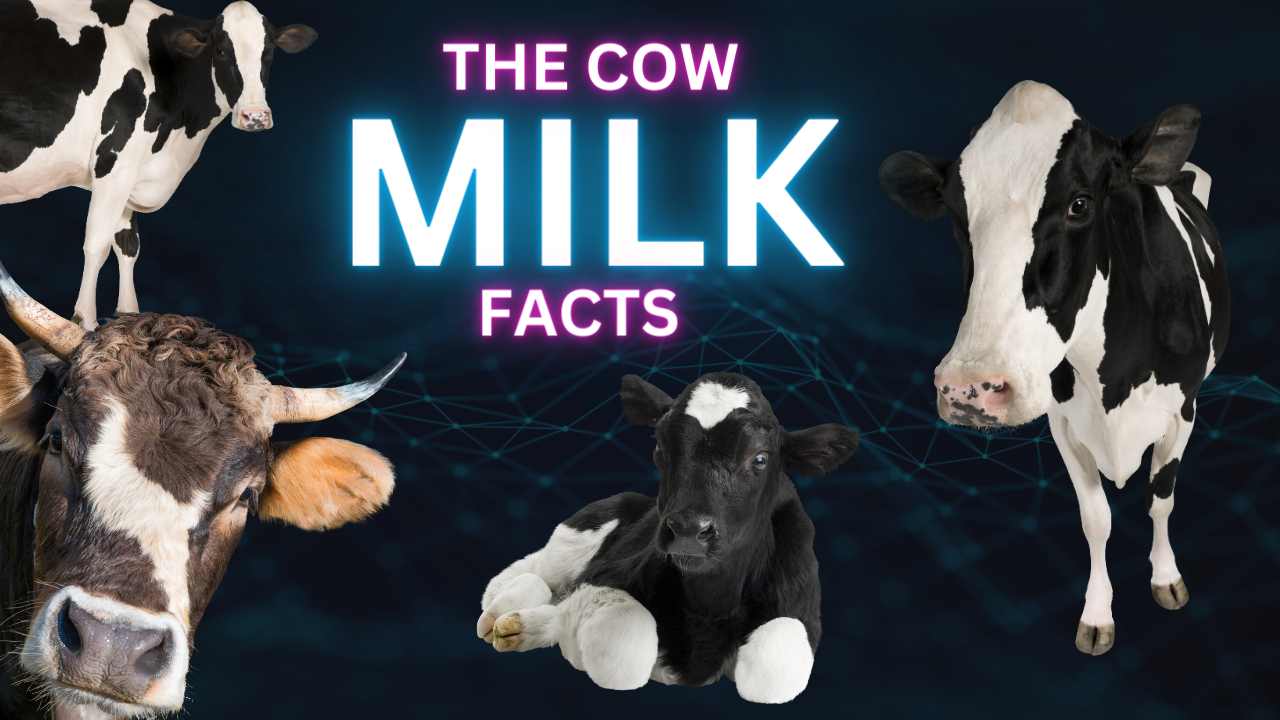The mammary glands in female mammals are responsible for producing milk. They use milk to nourish their young children just after birth.
Humans also consume milk or dairy products like butter and cheese, which are good sources of essential nutrients and vitamins.
Cow milk is considered one of the best milks and is the most widely consumed milk in the world. Indians have been consuming cow milk for the last 5000 years.
Different parts of the world also consume milk from domesticated sheep, goats, buffalo, and camels.
Milk is an emulsion of fat, protein, dissolved sugar, carbohydrates, minerals, and vitamins.
Milk contains energy, fat, cholesterol, protein, calcium, phosphorus, and carbohydrates.
Milk protein is the most valuable protein because it contains all the essential amino acids. Milk also contains calcium, phosphorus, and a small amount of iron.
Milk is generally pasteurized to make it last for approximately 14 days. Pasteurization is done by raising the temperature of milk high enough to destroy the pathogenic bacteria.
Milk is good for your bones because it contains nutrients like calcium, Phosphorus, potassium, protein and Vitamin K2. All of these nutrients are essential for strong and healthy bones.
Many people are unable to digest lactose, which is a sugar that is found in milk and dairy products. That is why milk is not for everyone, although it has a high nutritional value. But there are some alternatives to cow milk, like almond milk, coconut milk, cashew milk, soy milk, oat milk, and rice milk, which can be consumed as an alternative to cow milk because they do not contain lactose.
In India you can find many types of packaged milk, like pasteurized milk Homogenized milk, whole milk skimmed milk toned milk double toned milk buffalo milk cow milk, etc.

Nutritional benefits of cow milk
Nutritional Composition: Nearly all of the nutrients your body requires are present in cow milk, making it an excellent source of nutrition. 152 calories, 8.14 grams of protein, 12 grams of carbohydrates, and 8 grams of fat are found in one cup (249 grams) of whole cow’s milk with 3.25% fat.
Protein Content: With one gram of protein per fluid ounce (30 mL), milk is a fantastic source of protein. Casein and whey are the two main types of proteins found in milk. Eighty percent of milk proteins are casein, which helps the body absorb minerals and may even lower blood pressure. The remaining 20% is made up of whey proteins, which are high in branched-chain amino acids and can support mood enhancement and muscle growth during stressful situations.
Milk Fat: Approximately 4% of cow’s whole milk is fat. Saturated fats account for approximately 70% of its fatty acid content, making it high in them. Most of the remaining fats are monounsaturated.
Vitamins and Minerals: Vitamin A, which is necessary for strong immunity and healthy skin, is also found in milk.
Milk’s water: Milk water content, which helps to keep you hydrated, is surprisingly close to 88%.
Sugar Content: Milk contains a fair amount of sugar, with about 12 grams of sugar per cup, which is something to consider if you’re watching your sugar intake.
Lactose intolerance: A common condition that can cause digestive problems is lactose intolerance, which is the inability of the body to properly digest the lactose found in milk.
Calcium: Milk is renowned for having a high calcium content, which is necessary for healthy teeth and bones. You would need to consume a large amount of specific fruits or vegetables in order to get the amount of calcium found in an 8-ounce glass of milk.





